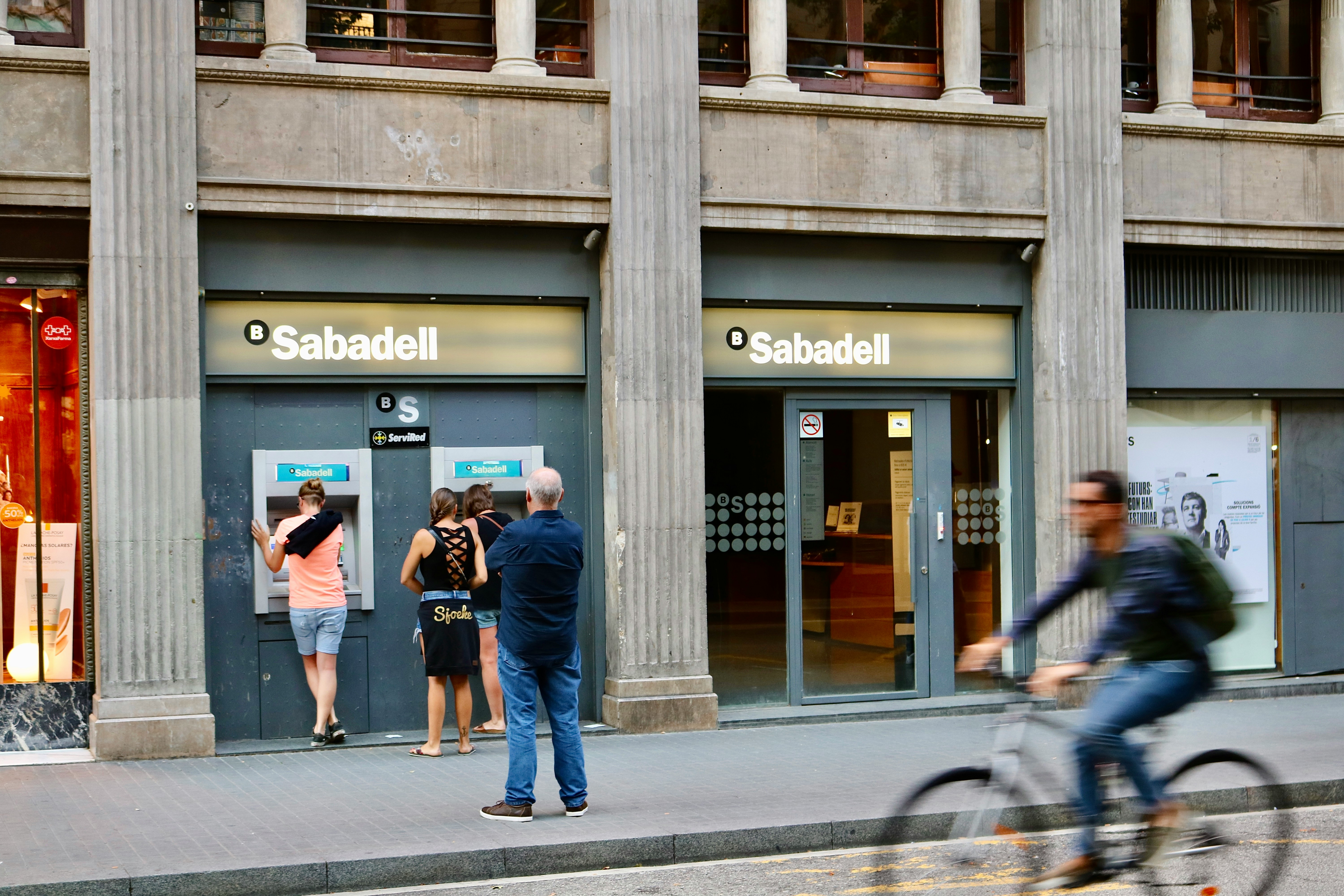If you are an international student who has moved to Barcelona, it is likely that at some point you will need to open a bank account in Spain to manage your finances efficiently.
In this article, we will provide you with a step-by-step guide on how to do this, from checking your eligibility to activating and using your bank account.

BANKS AND SAVING BANKS IN SPAIN
Banks and savings banks in Spain are generally open to the public from 08:30 to 14:00, Monday to Friday. Some banks may open on Thursday afternoons, except in summer, when they operate only in the morning. You’ll also find currency exchange offices in the city centre and in tourist areas, but be aware that they tend to charge high commissions and offer less favourable exchange rates.
International students, researchers and teachers, both from the European Union and other countries, can open a non-resident debit account with a number of financial institutions. You only need to present your valid passport as basic documentation. If you come from an EU country, you can also choose to open an account as a resident. We recommend that you check the conditions offered by different banks and choose the one that best suits your needs.
WHEN SHOULD YOU OPEN A BANK ACCOUNT AS AN INTERNATIONAL STUDENT?
Opening a bank account in Spain as an international student is an important decision. You should consider doing so when you need to make regular financial transactions or if you plan to stay in Barcelona for a significant period of time. This will make it easier to manage your finances and allow you to receive scholarship payments, work part-time and manage your day-to-day expenses.

HOW TO OPEN A BANK ACCOUNT IN SPAIN FOR INTERNATIONAL STUDENTS
STEP 1: CHECK YOUR ELIGIBILITY
Before you start, make sure you are eligible to open a bank account in Spain as an international student. Generally, you will need:
- Valid passport
- Admission letter from the university or research centre or documentation proving your status as a student in the country.
- Another document that accredits your student status in Catalonia.
STEP 2: CHOOSE A BANK
Do your research and select a bank that suits your needs. Some international banks, such as BNP Paribas and Deutsche Bank, have branches in Barcelona, which could make it easier to open your account. Some banks offer products for young people with no salary and no fees. Among the most popular for students are CaixaBank, BBVA, Banco Sabadell and Banco Santander.
Although it is feasible to open a bank account in Spain online, it is advisable to wait until you arrive in the country and do it at a bank branch in person. This avoids possible confusion about the type of account, fees and services. If you prefer to open an account online before you arrive, online banking options include N26 and Revolut.
STEP 3: COLLECT THE NECESSARY DOCUMENTS
Make sure you have all the required documents, which usually include your passport and letter of admission. In some cases, if you have a Spanish DNI, you may not need a temporary NIE.
STEP 4: MAKE AN APPOINTMENT WITH THE BANK OF YOUR CHOICE
Contact the bank of your choice to schedule an appointment. This will save you time and ensure that they have the right staff to help you.

STEP 5: GO TO THE APPOINTMENT
Take all the necessary documents with you and go to the appointment at the bank.
STEP 6: CHOOSE THE RIGHT TYPE OF ACCOUNT
Talk to the bank about the account options available and select the one that best suits your needs as an international student.
STEP 7: COMPLETE YOUR APPLICATION
Complete the account opening application form provided by the bank and provide the required information.
STEP 8: VERIFICATION BY YOUR BANK
The bank will verify your documentation and process your application. This process may take some time, so be patient.
STEP 9: RECEIVE YOUR BANK DETAILS
Once your application is approved, you will receive your bank account details. Now you can start using your new account!

TOP TIPS FOR OPENING A BANK ACCOUNT AS A STUDENT IN SPAIN
- Check if your home country has an agreement with a Spanish bank, as this can simplify the process.
- Be aware that some banks may charge monthly fees for your account, so find out what the costs may be
- Keep a record of the expiry dates of your visa and residence permit, as your bank may require updated documentation when they expire.
- At most universities, you will find bank branches nearby that often have special arrangements and can help you with tuition fees. Don’t hesitate to visit these branches for specific information.
- It is important to note that many banks offer discounts and promotions designed especially for young students like you. Research all banks to find the best perks, and don’t forget to always carry your student ID card with you if you have one. Also, when evaluating your banking options, consider factors such as the types of accounts available, payment options, account opening and maintenance fees, as well as credit and debit card options, and online banking services.
- If you need to withdraw cash from an ATM that does not belong to your bank, you will probably be charged a fee. Therefore, plan your cash withdrawals in advance.
- If you ever find yourself needing to exchange foreign currency, there are several options available to you. You can do so at bank branches, currency exchange offices, and even at many hotels and travel agencies. So, if you have plans to travel or study abroad, be sure to research exchange rates and convenient locations to exchange your money. Your financial health is key during your university years!
Opening a bank account is an essential step for international students in the UK, as it allows you to manage your finances conveniently and access a range of banking services.
If you have any further questions about moving to Barcelona as an international student, why not take a look at our FAQ section on our international student page?



